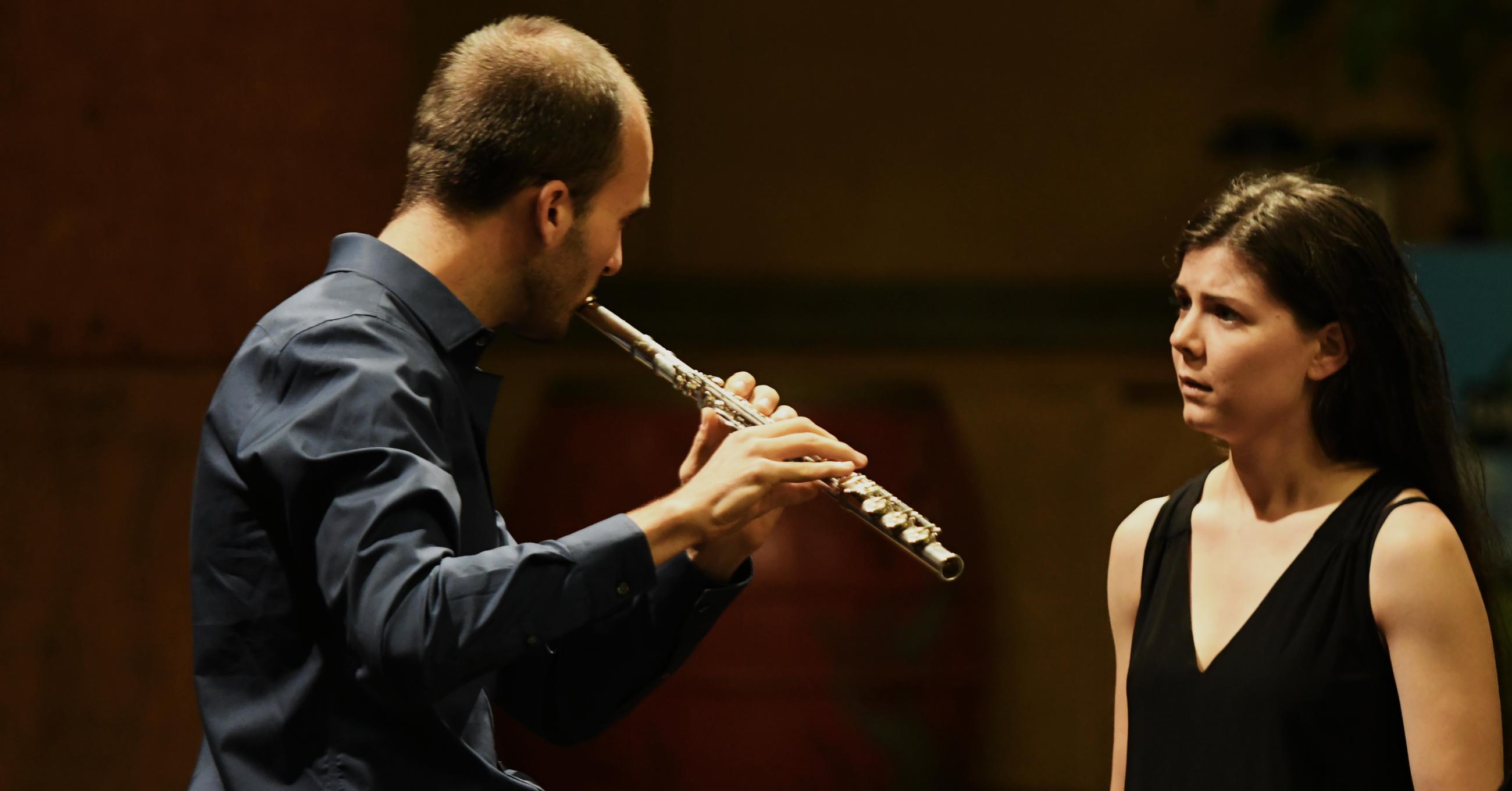
By Landon Hegedus, UChicago Presents
In conversation with soprano Lucy Fitz Gibbon, flutist Francesco Camuglia, and violinist Robyn Bollinger of the Musicians from Marlboro:
UChicago Presents: The performances we’re hearing on this concert are really special, because they’re forged in the fire of seven weeks of intense rehearsal over the course of the Marlboro Music Festival. Was there a particular moment during those seven weeks where it seemed to “click,” and you distinctly felt like there was magic happening in the music?
Lucy Fitz Gibbon: When Francesco [Camuglia] and I first started working together on Kate Soper’s Only the Words Themselves Mean What They Say, we found that the piece is made up almost entirely extended techniques, and so the score took some deciphering. Some of the markings are unusual, and even when they’re not unusual, they're often asking you to do something that's a little bit outside of your wheelhouse. That can make the process of learning it a bit slower in the beginning. With some pieces, you can pick up the score and sight read it, and produce on the first read a relatively good facsimile of what you can expect from the final presentation.
For this piece, we both had to spend some time exploring the music and trying to uncover how it would sound on our own particular instruments. For instance, Soper originally wrote this piece for herself to perform, so it's intimately tailored to her own voice. What’s more, it was also initially written for a female flute player, specifically. Because the score also calls for some vocalization from the flute player, having Frankie perform it in his own vocal range adds different colors and changes the sound in interesting ways. At the outset, our rehearsals were really about figuring that part out, and then at a certain point, things really clicked.
At Marlboro, because you're not required to perform anything that you work on, you get to a point where you just feel so excited about a piece that you want to perform it. Particularly with the Soper, as we got to know its unique language, it was really thrilling to come to a place where we felt like we were ready to share with an audience all the work and discovery and joy and humor we had found through our process.
UCP: The occasionally spontaneous nature of the Marlboro Music Festival often produces touring programs with fascinatingly varied and sometimes surprising repertoire choices. Have your ideas about programming evolved as a result of your experiences presenting such diverse repertoire?
Robyn Bollinger: For me, just the sheer exposure to music I didn't previously know has been so invigorating and so inspiring. I didn't know a whole lot of vocal music before Marlboro; I knew Schubert lieder, of course, but I didn’t know much else, so it’s been wonderful to get to play or listen to totally new pieces. Sometimes, even, you get assigned to a piece that you think you don't like, and so the act of spending a lot of time in rehearsal to come around to the music and consider things in a new way has really inspired me to think differently about how I create my own programs in the future.
